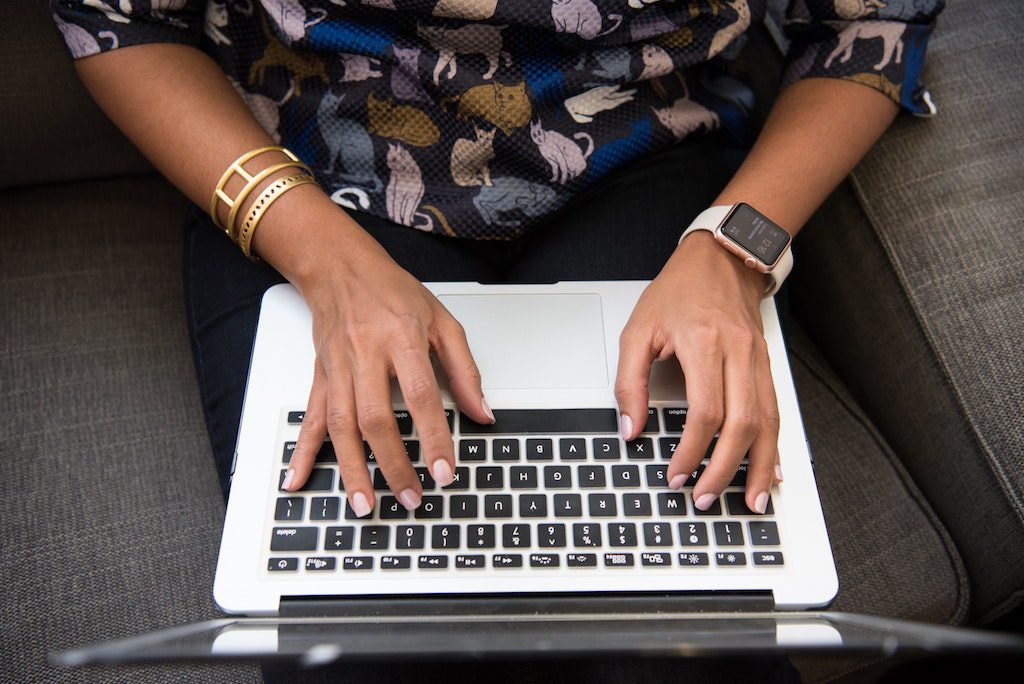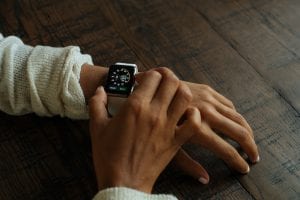Why Employers Love Tech-Based Wellness Programs

Skift Take
Now that the boundaries between work and wellness are blurring, it’s no surprise that tech-based programs are on the rise in workplaces. Back in 2016, 2 million employees worldwide received a wearable device as part of an office wellness program. As of 2018, that number was up to 6 million –– an increase of 4 million in two years, according to CBS News.
Yes, the perks can be real for employees. Not only do they get a free device, which could cost upwards of $100, but workers earn real money, too. For example, some employees taking part in UnitedHealthcare Motion received $1,000 to put toward co-pays and other medical costs if they reached certain step goals.
Employers see these programs as a financial win. Companies may save on premiums, and healthier employees might be more productive and miss fewer days of work. Plus, companies can come across as forward-thinking by offering such wellness perks.
The concern, though, is a big one. How much personal data do employees fork over when wearing the devices –– and can it be used against them, potentially keeping them from a promotion or new job down the line? Also, many workers might assume their data is protected under a U.S. law that provides privacy and security provisions for safeguarding medical information, but because employees voluntarily opt into these programs, that may not be the case.
Employees will have to start asking smart questions before they sign up, considering that these types of programs will likely only gain momentum in the years to come.
In other health technology news, Healthy.io received FDA clearance for its at-home urinalysis test for kidney disease, which utilizes a customer’s smartphone camera and the startup's app to help make the diagnosis. The tech will likely help make it easier for people to get diagnosed –– but as with the workplace wellness programs, it’s too early to tell what consequences may lie ahead.
For feedback or news tips, reach out via email at lb@skift.com or tweet me @lesliebarrie.
— Leslie Barrie, Wellness Editor
Wearables
 Fitness Trackers Make It Easy for Workplaces to Monitor Employees’ Data: For employers, gathering health and fitness stats about its workforce may seem like a useful tool to potentially lower costs. Employees, too, see the perks. The UnitedHealthcare Motion program, for example, gives users $1,000 to put toward co-pays and more if they reach certain fitness goals. The catch: Employees’ data may not be kept confidential in certain circumstances –– and there’s a chance the information could be used against them in the future. For now, it’s unclear whether these concerns will slow growth. Read more here.
Fitness Trackers Make It Easy for Workplaces to Monitor Employees’ Data: For employers, gathering health and fitness stats about its workforce may seem like a useful tool to potentially lower costs. Employees, too, see the perks. The UnitedHealthcare Motion program, for example, gives users $1,000 to put toward co-pays and more if they reach certain fitness goals. The catch: Employees’ data may not be kept confidential in certain circumstances –– and there’s a chance the information could be used against them in the future. For now, it’s unclear whether these concerns will slow growth. Read more here.
Healthcare
You Can Now Use Your Smartphone to Test Yourself for Kidney Disease: A whopping 30 million Americans have chronic kidney disease –– which is on the rise in the U.S. –– and early detection could mean avoiding complications later on. So it makes sense that a startup like Healthy.io would enter the space. Its FDA-cleared urinalysis kit allows you to test a sample at your own home, take a picture of the tester strip with your smartphone camera, and have it analyzed via the company's app. While it’s too soon to know if the startup will disrupt the testing industry, the $18 million in funding it just received shows that investors see promise. Read more here.
Travel
Skift Travel Megatrends 2019: Wellness Is the New Hook in Travel Marketing: As more vacationers seek healthier, active trips, travel marketers have begun adapting their messaging to attract this new set of customers. Some destinations have taken a more overt approach. The Romagna region of Italy, for example, has labeled itself “Wellness Valley,” while Santa Fe has more subtly changed its advertising to show that it’s not just a spa destination, but rather a wellness hot spot. Given the expected growth of the wellness travel sector, other cities would be wise to capitalize on the movement. Read more here.
Fitness
Peloton Has Taken Another Step Toward Its Inevitable IPO: It’s gearing up to be a big year for Peloton. The at-home fitness equipment and streaming service startup has chosen the banks that will lead its initial public offering: Goldman Sachs and JPMorgan Chase. According to Bloomberg, the company could be valued at more than $8 billion. While the timing of the IPO has yet to be decided, there’s sure to be much buzz when the day comes. Read more here.
Athleisure
Nike Scores a Win With Its Ad Featuring Trailblazing Female Athletes: Debuting during the Oscars, Nike’s new “Dream Crazier” ad, narrated by Serena Williams, illustrates a clear marketing strategy for the company: Use social justice as a way to connect with a bigger cause and sell products in the process. The tactic worked with the Colin Kaepernick campaign and appears to be creating buzz with this latest ad, which highlights the challenges and double standards women face in sports. Considering its success so far, Nike would be wise to keep up this statement-making strategy. Read more here.
Vitamins & Supplements
Do New Supplement Startups Really Deliver on Their Claims? In an era of wellness-minded consumers, supplements are not only seen as healthy — they’re considered "hip." This is especially the case with brands like The Nue Co., Ritual, and Evermore, which rely on slick marketing, house their pills and powders in chic packaging, and have cultivated devoted customers who are willing to pay a premium. While many of these brands claim to be backed by science, customers will have to decide whether the products really work and are worth it. Read more here.
Beauty & Spa
Natural Beauty Brands See Big Growth Potential at Target: In early February, Target announced it would ramp up its natural beauty offerings by carrying brands like Tenoverten, a nontoxic nail polish line, and Cocokind, a superfood-based skin care company, after seeing major success with other natural lines. Natural beauty companies have found ways to make their businesses work with the Target model and take advantage of the mass-market opportunity by lowering prices and retooling packaging. Our take: It’s probably worth the effort. Read more here.
Skift Wellness Editor Leslie Barrie [lb@skift.com] curates the Skift Wellness newsletter. Skift emails the newsletter every Thursday.





